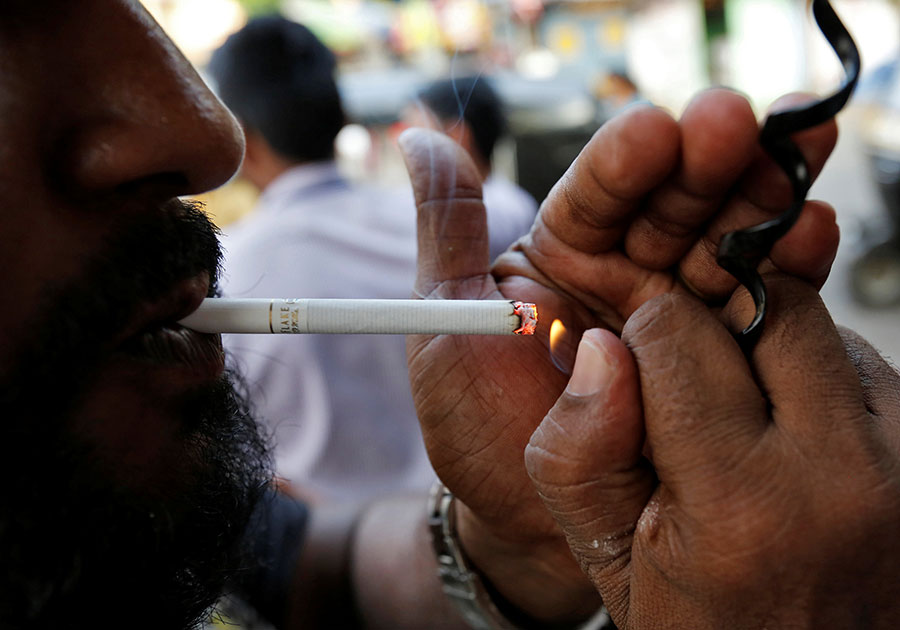Even though India has one of the most valued tobacco industries in the world ($11 billion), this Tuesday the National Government reaffirmed his full commitment to the treaty that tries to deter tobacco use that kills around 6 million people annually. Only in India, the deaths caused by tobacco ascend to 1 million.
The Indian tobacco industry is partly owned by the British American Tobacco Company and Godfrey Phillips. The Phillip Morris International local partner has not stated any comment related to the government position. However, this problem involves over 100,000 farmers all over India that are directly affected by the regulations that the treaty contemplates. This guild of tobacco workers has managed to send the Indian Government an official petition that seeks for protection from the rules of the Framework Convention on Tobacco Control (FTCT).

Different positions and interests
The Tobacco Institute of India (TII) has said, in a letter published on Sept 28, that “there is no obligation on any signatory to the FCTC.” This letter was sent to the Health Ministry to put their position clear. The government never reacted to this letter until the past Tuesday when the health minister said to several local news portals that this country would apply all the mandatory assignments established in the FTCT.
“India reiterates its commitment to the full implementation of World Health Organization (WHO) FCTC,” said the heatlh minister.
This treaty has been criticized heavily for not being transparent, and in fact, one of the pleas that the TII is having on this matter is that the guild of workers point of view could listen to the WHO FCTC Conference. The objective of this is to avoid any “unreasonable and impractical proposals” getting adopted.
This petition took place alongside a series of silent protests and lobbying that have been happening in the last days. However, the official stance of the government is not to grant any permission to the TII. Officials have reiterated their position not to bow to “pressure tactics.”
The situation of tobacco usage in India becomes very relevant, because according to official numbers from the WHO, tobacco-related diseases cost around $16 billion to the country. This supports the recent declarations from the health minister, saying that “there will not be soft corners for the industry,” making the situation even tenser.
In the WHO FCTC Debate, the topics include from alternative livelihoods for tobacco farmers, e-cigarettes and trade and investment issues. We will have to wait for the results of this Conference and its consequences to this billion dollar industry. The TII is, in fact, the world´s third-biggest tobacco producer, and this situation could heavily damage it.
Source: Reuters
